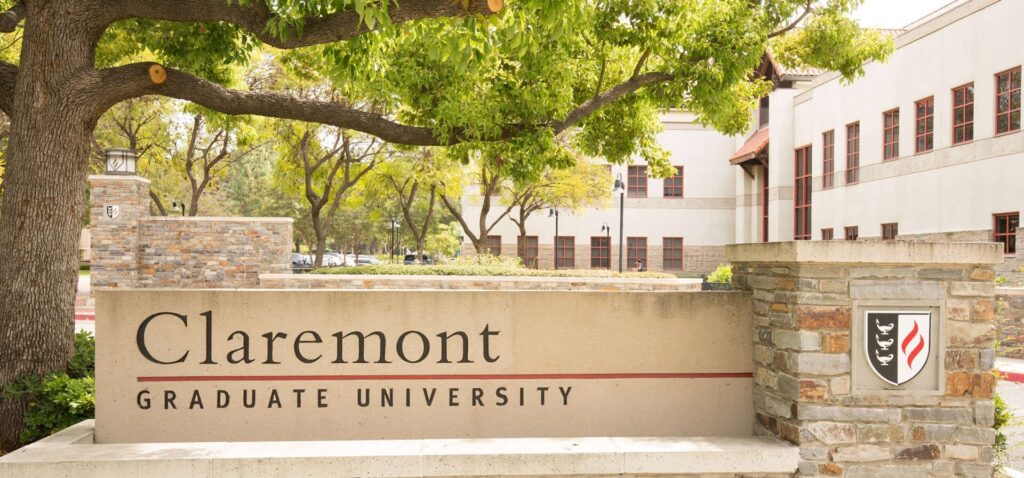Longtime volunteer resigns after changes in city committee’s role

A longtime member of Claremont’s Committee on Human Relations has resigned amid concerns over the city process.
Rose Ash has been involved with the committee since its inception in 1996, she told the COURIER from her home in Pilgrim Place. Ms. Ash said the committee has existed as a response vehicle for the city whenever a hate incident occurred in Claremont.
Now she believes the committee has been stymied in responding rapidly to hate incidents due to the city process. Human Services Director Anne Turner has said the committee couldn’t speak for the city council as representatives of Claremont.
The main point of contention, it seems, is who has the power to do what?
When the committee first formed, Ms. Ash said it was given more autonomy to quickly respond to incidents of hate that occurred not just in Claremont, but also around the Foothill communities.
“We took bold stances,” she said. “Part of our mission is not just to respond to a hate incident, but to also educate the public to make sure they know these things are happening in the community, and that there are ways to address it through education and learning opportunities to mediate hate and bigotry.”
Claremont was reeling from Ku Klux Klan literature being distributed around town, and the committee was established to denounce those acts.
“It was vile, horrible literature, and members of the community couldn’t believe that here in sleepy, peaceful, wonderful Claremont, there could be such hatred and bigotry,” Ms. Ash said.
Over time, the committee began to wane, especially during the Obama administration, Ms. Ash noted as a symptom of complacency during that time. After Donald Trump was elected in 2016, hate incidents began popping up in the region, including anti-Muslim literature sent to the Islamic Center of Claremont (ICC) in 2017.
“It was at that point I went before the council and asked for a reorganization of the human relations committee, and it was granted,” Ms. Ash said. “Part of granting that was to give us more autonomy.”
Ms. Turner said the first iteration of the committee in 1996 was a “standalone committee” that residents would come to if they felt they were victims of a hate incident or hate crime. This was before Claremont had a police commission, which now acts as that liaison.
But over time, the human relations committee was seen more as a “crisis committee,” Ms. Turner said, searching for a purpose after incidents were resolved.
“And so unfortunately, the challenge for the committee is how do they sustain themselves with meaningful work between crises,” she said.
This was the reason, Ms. Turner said, the committee was re-established under the umbrella of the community and human services commission.
But under that umbrella came new challenges. Since the committee was re-established, Ms. Ash said it has been roadblocked from responding to certain incidents.
In previous years, the committee would respond rapidly with public and private overtures, Ms. Ash said. If the committee wanted to respond to an incident nowadays, it has to put out a public notice, hold a special meeting, take public comment and send a recommendation to the commission and, eventually, the city council.
“To me, that defeats the whole mission and purpose of a human relations committee, which by necessity needs to be responding immediately,” Ms. Ash said.
She was adamant to note it wasn’t any one person’s fault. “I have no doubt that city staff and commission members and councilmembers share these kinds of values,” Ms. Ash said. “I don’t think there’s anybody there who is against this kind of work. But again, it’s kind of like an attitude of being a little bit concerned about being too reactive, too spontaneous.”
Ms. Turner acknowledged that Ms. Ash’s vision for the committee differed from that of the city.
“She had a fantastic attitude. She gave it absolutely everything she had; she’s an enormous advocate for the community,” Ms. Turner said. “The problem was she felt constrained by the fact that she had to check with somebody and the committee couldn’t speak independently of the city council.”
Ms. Turner noted the new human relations committee was partnering with Los Angeles County to bring best practices to the city. Ms. Ash wanted to go deeper, however, including sending letters to San Dimas and Upland who were considering opposing California’s sanctuary state status.
“From the city’s standpoint, that’s impossible. We would never empower a committee to be more powerful than the city council,” Ms. Turner said. “And while I appreciate the committee’s empowering work in the previous iteration, that’s not what we need now.”
In Ms. Ash’s view, the strictness of the Brown Act—a framework for public meetings in California—has dulled the committee’s ability to quickly respond. Ms. Ash acknowledged its importance, but was frustrated with the structure and how it conflicted with the spontaneous work of the committee.
Even writing a letter to the COURIER, she noted, was obstructed due to the demand to the requirement to push through various channels.
“I think the city has taken a very conservative view toward the Brown Act,” Ms. Ash said. “I’m not saying it’s an incorrect perspective, but their interpretation is to play it closer to the letter of the law.”
Watchdog groups have scrutinized city government more these days than in previous years, and if the process isn’t fully adhered to, the city fears it could get sued.
“I guess the logic goes that if the committee on human relations were to not notice properly a certain action, that we have not done everything procedurally properly, then we are potentially liable,” she said. “And I think that level of scrutiny with regards to the Brown Act didn’t exist 20 years ago.”
Both Ms. Ash and Ms. Turner said similar situations were occurring across Los Angeles County.
“Unfortunately, I think it’s just about looking at what you had, and it was a different time,” Ms. Turner said. “Government and the scrutiny of government are just really different today than it was in 1996.”
Ms. Ash was also concerned with the lack of attention paid when the committee rebooted in 2017. In her words, it was “invisible to the community.” She urged more Claremonters to come to meetings to make their voices heard.
“It’s up to community members at large to push for those kinds of changes,” she said. “And until the city officialdom and city administrators hear that, things will stay the same.”
Ms. Turner said Ms. Ash could do this kind of work as an independent group, but not under a city committee paid for by state funds. “It was a really unfortunate Catch-22 for her,” she added.
Ms. Ash remembers organizing a grassroots protest against family separations at the southern border last year. In two weekends, she said, through social media she organized more than 1,000 people to demonstrate at Memorial Park.
“But the point is, the human relations committee should have been driving that,” Ms. Ash said.
—Matthew Bramlett
news@claremont-courier.com










0 Comments